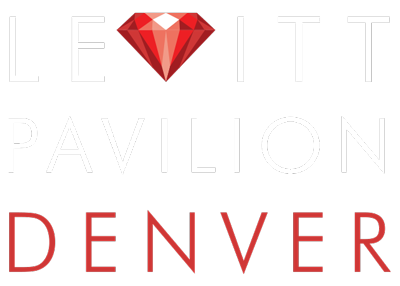Levitt Pavilion Concert Series Will Take Center Stage At The New Ruby Hill Park
By Paul Kashmann, Washington Park Profile
LEVITT PAVILLION STEELSTACKS IN BETHLEHEM, PENNSYLVANIA is one of six performance spaces sponsored by the Levitt Foundation offering 50 free concerts annually to urban audiences.
Those of you who have lived in Denver long enough to remember when winter’s snowfall was regular enough to allow for frequent frolics in the great outdoors, probably know Ruby Hill for its great sledding runs.
More recent arrivals to the Mile High City may make the trek to the southwest Denver park when the Ruby Hill Rail Yard returns for its (weather permitting) six-week winter run, inviting urban athletes to sharpen up their ski or snowboard chops on a base of manmade snow and a series of ramps, jumps and rails.
If you’ve not yet found your way to this 80-acre haven at the junction of S. Platte River Dr. and W. Jewell Ave., we’re thinking that could change in the not-distant future. Denver Parks and Recreation (DPR) is currently in the mid-stages of a three-phase redevelopment that will transform Ruby Hill into one of the crown jewels of Denver’s already quite impressive parks system.
The Ruby Hill Master Plan completed in 2006 is the guiding document for the work in progress. Phase One improvements, finished in 2011 with $4 million in Better Denver bond funding, focused on infrastructure basics, including a top-of-the-park picnic pavilion structure, a new playground and some 20 miles of new irrigation system.
DPR spokesperson, Jeff Green, told The Profile that the goal is to “activate Ruby Hill as an outdoor recreation destination.” In addition to continued playground improvements, upgrades currently being designed include removing the existing swimming pool and adding an interactive fountain/splash area, expanded walking trails, a mountain bike skills course and a skate skills area.
While these substantial changes promise to make Ruby Hill a more appealing choice for Denver families, an outdoor performance space slated to produce 50 free concerts every year could be the deal maker that elevates the park to the head of the pack.
Levitt Pavilions, a California-based non-profit that has helped fund and run performance spaces in six U.S. cities – Westport, Conn.; Bethlehem, Pa.; Memphis, Tenn.; Arlington, Texas; and Pasadena and Los Angeles, Calif. – has announced a partnership with the City and County of Denver that will place the lucky seventh Levitt Pavilion at Ruby Hill.
A permanent covered stage and state-of-the-art sound system will provide the launching pad for a free concert series that will run Wed.-Sat., from May to September, presenting local, regional and national performing artists of all musical genres. There will be no permanent seating; the vision is for up to 7,500 people to gather on blankets and in lawn chairs.
Chris Zacher – music fans may know him from his years with the City Park Jazz series – is executive director of Levitt Pavilion Denver. Zacher explained that overall construction costs for the new facility are estimated at $4 million. Levitt is providing $400,000 in construction money, as well as $775,000 in operational funds over the first five years, and $100,000 per year after that, in perpetuity. The city is putting up $2 million in Better Denver bond money, leaving it up to Levitt Pavilion Denver to raise the remaining money needed to complete the deal.
At the May announcement of the agreement with Levitt, DPR Manager Lauri Dannemiller said, “Ruby Hill is a great park already. We’re continuing to unlock the hidden potential to make it a destination in its own right. We expect the Levitt Pavilion to be the centerpiece.”
The Levitt Foundation is named for and funded by monies set aside for support of the arts by its founder Mortimer Levitt, described by the New York Times in his 2005 obituary as “an irrepressible and outspoken patron of the arts who made a fortune selling custom-made shirts to celebrities, business executives, political figures and others who didn’t have to ask the price.”
His daughter, Liz Levitt, explained that, “The Levitt Foundation exists to strengthen the social fabric of America with the power of live music – to break down socio-economic barriers. Among our core values is accessibility to the arts. We want this to be a living room for the entire city.”
Zacher emphasized that the free concert series will focus on local musicians: “There’s so much local talent here, we want to give them the stage whenever possible.” Larger names do find their way to Levitt stages, with nearly a dozen Grammy winners performing for Levitt audiences in recent years.
Zacher is aware that bringing thousands of music lovers to the park presents its share of challenges. “We want to keep any impact on the surrounding neighborhoods to a minimum. Parking, security and toilets are the most important non-music elements of a concert. We’re working on a plan that will address these concerns.
“We certainly don’t expect 7,500 people to attend our shows right away. It took 23 years before City Park Jazz was averaging 2,500 people at its Sunday night shows. It will take time to build an audience.”
The Pavilion will be able to host up to five fee-based events per year. “We’ll probably start with one or two as fundraisers for the free series,” said Zacher. “We’ll also permit it out to groups that further our mission, be it symphony, opera or other appropriate organizations. Our mission is to bring arts to the underserved, and we’ll try our best to do that.”

